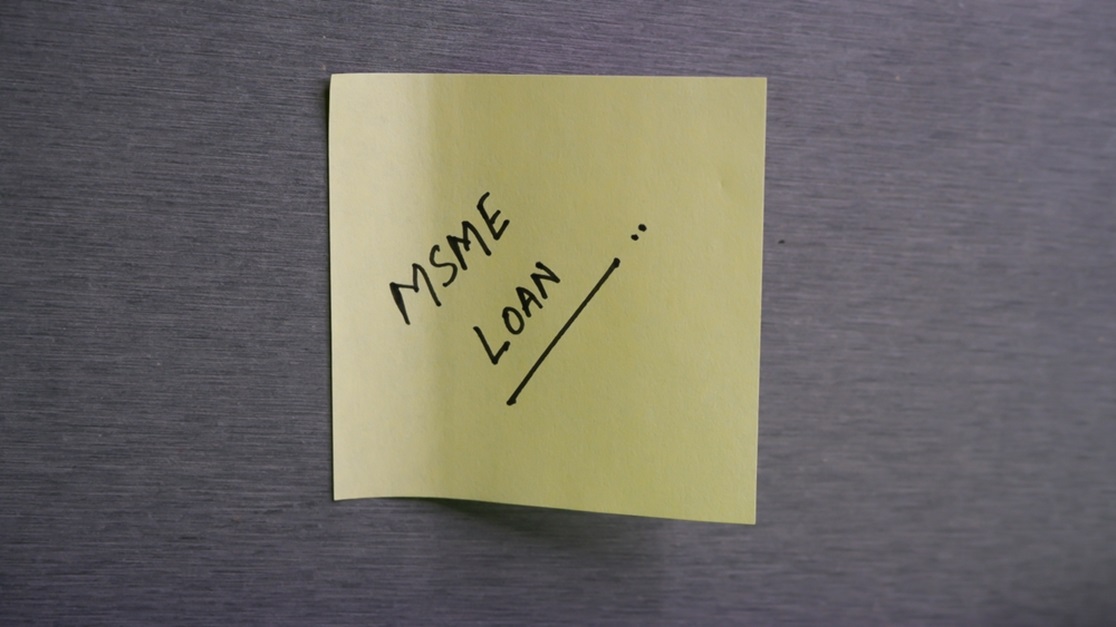Cash Credit vs. Overdraft: Which is Better for Your Business?
April 15, 2025

In the fast-paced world of business, maintaining a steady cash flow is crucial for survival and growth. Whether you're managing day-to-day operations or planning for expansion, having access to flexible financing options can make all the difference. Two popular credit facilities offered by banks to support businesses are Cash Credit (CC) and Overdraft (OD). While both offer short-term financing solutions, understanding their distinct features can help you choose the best option for your business. Let's dive into the details to make an informed decision.
What is Cash Credit (CC)?
Cash Credit is a short-term financing facility provided by banks to businesses to meet their working capital needs. It allows businesses to withdraw funds up to a sanctioned limit even if their account balance is zero. The borrowed amount is usually secured against inventory, receivables, or other business assets. Interest is charged only on the amount utilized, not the entire sanctioned limit.
Key Features of Cash Credit:
- Purpose: Designed primarily to finance working capital requirements.
- Security: Requires collateral such as inventory, receivables, or fixed assets.
- Repayment: Flexible with no fixed repayment schedule; however, regular account reviews are conducted.
- Interest: Charged only on the utilized amount, not on the entire limit.
- Tenure: Typically reviewed annually and renewed based on business performance.
What is Overdraft (OD)?
An Overdraft facility allows businesses or individuals to withdraw more money than what is available in their current account, up to a pre-approved limit. Unlike Cash Credit, OD can be secured or unsecured, depending on the borrower's creditworthiness and relationship with the bank.
Key Features of Overdraft:
- Purpose: Suitable for managing short-term cash flow mismatches and emergencies.
- Security: Can be secured against assets or unsecured based on credit history.
- Repayment: No fixed repayment schedule, but interest accrues on the utilized amount.
- Interest: Charged only on the utilised amount.
- Tenure: Generally renewable annually or as per the bank's discretion.
Key Differences Between Cash Credit and Overdraft
| Feature | Cash Credit (CC) | Demand Draft |
| Purpose | Working capital | Short-term cash flow management |
| Security | You need to pledge stocks and inventory as collateral | Can be secured and unsecured |
| Interest Rate | Comparatively lower interest rate | Comparatively higher interest rate |
| Applicants | Individuals, traders, LLPs, partnerships, companies, etc | Account holders of the specific bank |
| Loan Amount | Based on volume of stocks and inventory | Based on security deposits and company financials |
| Tenure | Typically, 1 year, renewable | Few months to 1 year - often reviewed annually |
| Limit | Unchanged | Decreases every month |
Which is Better for Your Business?
The choice between Cash Credit and Overdraft depends on the nature and needs of your business.
1. Choose Cash Credit if:
- Your business requires consistent working capital support.
- You have tangible assets like inventory or receivables to offer as collateral.
2. Choose Overdraft if:
- You need occasional funds to manage unexpected expenses.
- Your business lacks substantial collateral but has a strong banking relationship.
Ultimately, assessing your business's cash flow patterns, financial strength, and borrowing needs will help determine the most suitable facility.
Final Thoughts
Both Cash Credit and Overdraft are valuable tools for managing short-term financial needs. Cash Credit is ideal for businesses with regular working capital requirements, while Overdraft suits those needing flexibility for occasional cash flow mismatches. By understanding the features, benefits, and limitations of each, you can make a strategic decision that aligns with your business goals.
Take your business to the next level with Ujjivan Small Finance Bank MSME Loans. We have a host of MSME products tailored for your unique business growth needs. Additionally, we offer MSME Overdraft facilities for urgent business capital requirement. Browse through our suite of products and apply today!
FAQs
1. Can a start-up avail of Cash Credit or Overdraft facilities?
Start-ups can avail of these facilities if they meet the bank's eligibility criteria. Overdraft may be easier to obtain if the start-up lacks collateral, whereas Cash Credit usually requires assets as security.
2. Is interest charged on the entire limit for Cash Credit and Overdraft?
No, interest is charged only on the amount utilized in both Cash Credit and Overdraft, making them cost-effective for managing cash flow.
3. Can I convert my Overdraft facility into a Cash Credit account?
Banks typically do not allow direct conversion. However, you can apply for a Cash Credit facility separately if your business meets the eligibility criteria.
4. What collateral is required for a Cash Credit facility?
Common collateral includes inventory, accounts receivable, and other current business assets. Banks assess the value of these assets to determine the credit limit.
5. How is the credit limit determined for Overdraft and Cash Credit?
For Cash Credit, it depends on business turnover and asset value. For Overdraft, it depends on account history, creditworthiness, and banking relationships.
6. Are there any processing fees for availing Cash Credit or Overdraft?
Yes, banks may charge processing fees, annual renewal fees, or documentation charges. These fees vary by bank and loan amount.
7. Can individuals avail of an Overdraft facility?
Yes, individuals with a current or savings account can avail of an Overdraft facility, usually against fixed deposits or other securities.
8. What happens if I fail to repay the borrowed amount on time?
Delayed repayment leads to additional interest charges and could impact your credit score. In severe cases, the bank may take legal action or liquidate collateral.
9. Is there a minimum utilization requirement for Cash Credit?
Some banks may require a minimum utilization to justify the credit facility, while others allow full flexibility. Check with your bank for specific terms.
10. How frequently are Cash Credit and Overdraft facilities reviewed?
Both facilities are typically reviewed annually. The bank assesses business performance, account usage, and repayment behaviour before renewal.
Latest Blogs

Telangana Housing Board & KPHB Colony: A Guide to Affordable Urban Housing in Hyderabad
March 14, 2025
As Telangana continues its rapid urbanisation journey, two key housing entities—Telangana Housing Board (THB) and Kukatpally Housing Board Colony (KPHB)—have played critical roles in shaping the state's real estate ecosystem.

Does Checking CIBIL Score Frequently Lower Your Credit Points?
April 07, 2025
Imagine you're planning to apply for a home loan, a credit card, or even a car loan. Naturally, you want to ensure your CIBIL score is in good shape before proceeding.

Explained: Can NRIs Buy an Agricultural Land in India?
April 03, 2025
Real estate investment is often a top priority for Non-Resident Indians (NRIs) looking to retain strong financial ties to India.

How to Improve Your CIBIL Score from 600 to 750: A Step-by-Step Guide
April 02, 2025
Your CIBIL score is like your financial reputation—banks check it before approving loans or credit cards. If your score is hovering around 600, you might face difficulties in securing credit or may get loans with higher interest rates.

What Happens When You Leave Your Savings Account Unused?
April 01, 2025
Imagine waking up one day to find that your hard-earned money is locked away and inaccessible. Sounds stressful, right? This is precisely what happens when you leave your Savings Account inactive for too long.



